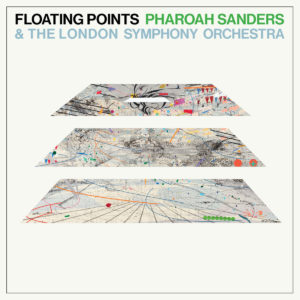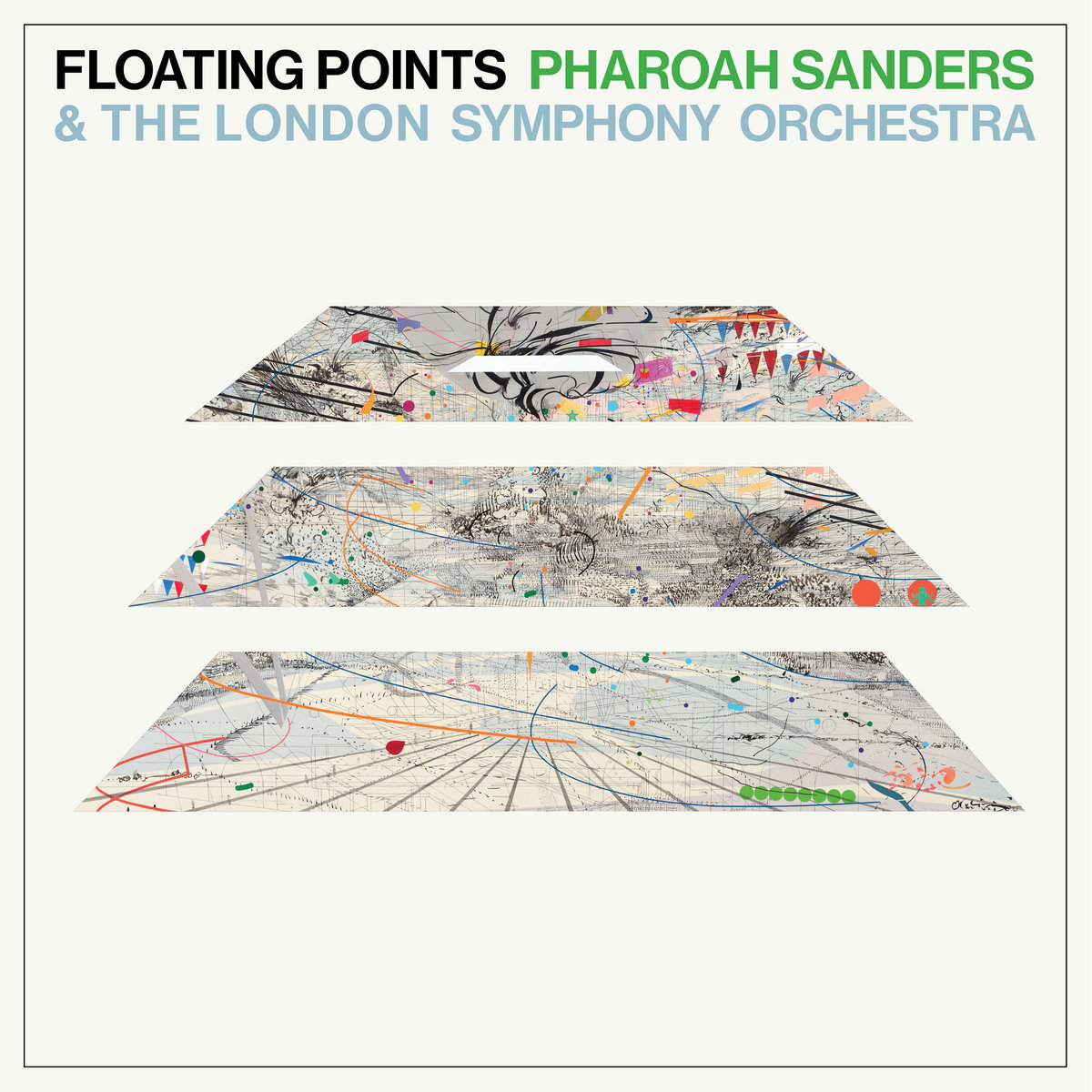 Floating Points, Pharoah Sanders, & London Symphony Orchestra
Floating Points, Pharoah Sanders, & London Symphony Orchestra
Promises
LUAKA BOP
9/10
With its repetitive melody and chime-ringing sparkle reminiscent of Jerry Goldsmith’s theme for Chinatown, avant jazz avatar Pharoah Sanders and electro-acoustic manipulator Sam Shepherd (the British composer, instrumentalist, and producer known as Floating Points) have created a vintage vibe noir masterpiece for the 21st century. This lush and uneasily quiet score—interrupted by and intertwined with Sanders’ patented holy harmonics and an eerie organ-harmonium or droning synthesizer signaling all that is unknown—find Sanders and Shepherd fusing a looped and loopy elegy dedicated to a soul’s transitioning, or a lost, loose weekend.
Its lengthy epic movements, gently textured and opulently lived in by the London Symphony Orchestra’s startled, spacey strings, could exist on a planet of their own—a rainy evening’s night sky with stars blinking dimly before the clouds. And they do often through Shepherd’s composition. Yet no sooner than the elongated whine of the wire starts to spin, and the bell-tones of a celeste jangle through the ozone, saxophonist Sanders’ free spiritualized-ritualized breaths begin to saunter and walk as if sleepwalking. Free, breezy, and gentle, Sanders’ sax, punctuated by his occasional word jazz (an intimate mumble, a hum, a flurry of mouth noises and frozen syllables) suddenly gives the ungrounded monologue a sudden center, an unblotted tear where only dry, white clouds previously existed.
There may be precedents for this—an atmospheric meeting between orchestra, saxophone, and electronics—in Ornette Coleman’s 1972 Skies of America, also with the London Symphony Orchestra. The difference, however, is a cranky, angry day across the plains of the United States with Coleman’s elegantly discordant blues runs traipsing over atonal orchestration versus a night full of wonder, God, and unimaginable and unknown vistas. There is no GPS tracking for where these Promises lie.







